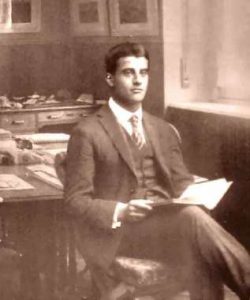
By Renae Kranz
We face many challenges in life. The saints faced them, too. We tend to think we can never be as holy as they were, as if they were simply born that way. But they met their challenges head on, putting their trust in God to help them through. Heaven was always their goal as it is ours.
One saint, St. John Vianney, was thrown into the fire of challenge almost from the beginning. Many thought his lack of intelligence and education would keep him from becoming a priest. And once he became a priest, he faced massive resistance from the very people he was trying to help get to heaven.
He faced these challenges and instead of failing, brought thousands to the Church. In the process, he achieved the ultimate goal for his soul—heaven.
 John Vianney was born May 8, 1786, in Dardilly, France, the fourth of six children. His parents, Matthieu and Marie, were devout Catholics who often helped the poor.
John Vianney was born May 8, 1786, in Dardilly, France, the fourth of six children. His parents, Matthieu and Marie, were devout Catholics who often helped the poor.
John grew up during the French Revolution when priests and religious were forced into hiding and put their own lives at great risk to carry out the sacraments. The Vianney family attended Mass at farms some distance from their home even though it was illegal to attend religious celebrations. The priests who risked their lives to bring the sacraments to the French people were heroes in John’s eyes and had a profound effect on him.
The French Revolution’s ban on religious practice and clergy was finally lifted in 1802 under Napoleon, and the Catholic Church was reestablished in France. John had already received his first communion and was confirmed. Unfortunately, his prospects for a future vocation were severely affected by his lack of formal education due to the revolution.
His father finally allowed John to leave the farm when he was 20 to attend a presbytery school in a neighboring village. With average intelligence and that lack of early formal education, he struggled with his studies, especially Latin. John’s teacher, Abbé Balley, was patient with him and helped him persevere in his learning.
When Napoleon instituted a draft in 1809 to increase his military numbers for a war against Spain, John was forced to leave school and report to Roanne for duty. Once there, he went into a church to pray and somehow was separated from his group. A young man who offered to help him get back to the group instead whisked him out of Roanne and to Les Noes to be hidden with other deserters. He lived there in hiding for 14 months.
In 1810, deserters were granted amnesty, and John was able to return to school and later attend minor seminary. By 1813 he was sent to the major seminary in Lyons, but he was considered slow and was sent back to his original teacher, Abbé Balley. The lack of education when he was young had finally caught up with him.
This had to be a difficult time for John. He wanted nothing more than to become one of the priests he admired as a child. Being labeled slow could have kept him from the priesthood completely. One of the things that saved him was his piety.
Balley convinced the Vicar general of the seminary to reconsider, saying his common sense and great piety made up for what he lacked in intelligence. The Vicar general relented and welcomed him back. John was eventually ordained a priest on August 12, 1815.
Someone else’s intelligence can be a delicate subject. Not everyone is gifted with the same degree of intelligence as others may have, but that doesn’t mean they are less somehow. Too often we label people by what they don’t have, especially as children: she’s not smart, he isn’t athletic, she can’t carry a note, he’ll never amount to anything because he can’t sit still.
But St. John Vianney shows us that we can use our strengths to mitigate our weaknesses. He may have felt shame and frustration about his lack of education. It was something he couldn’t really change. Instead, he took what he was good at, common sense and piety, and learned to excel at them. He probably prayed about those things often.
We can do the same thing. Grab onto the one or two things you’re best at and pray about them. Ask God to show you how to use them to serve Him best. When we do that, we can find true fulfillment and joy in our lives because we are using what God gave us to the best of our ability. What we can’t do won’t matter. God never meant for us to focus on our weakness, only our strength.
For me, I was never a very good athlete. Oh sure, I played basketball in high school, but I wasn’t that good. When someone told me it looked like I was pulling a plow when I ran, it really bothered me.
But God didn’t put me here to excel in athletics, or even be good at them. As I got older, I realized the only things that mattered were the things I’m great at. I’m a writer. God asked me to write for him, so that’s what I do.
God asked John Vianney to be a priest, not to be the smartest guy in the room. But even after he was ordained a priest, his challenges didn’t stop. They had just begun.
By 1818, John was sent to be the parish priest in Ars, France. This was a small town of only 230 people, a place where John’s bishop thought he couldn’t do much damage. John quickly learned he couldn’t possibly do more damage than the French Revolution had already inflicted.
John’s new parish was filled with people who were either indifferent or ignorant, and often both, about their Catholic faith. The French Revolution had caused much damage to the Catholic Church over the years. Rather than attend Mass on Sundays, the townspeople worked in the fields or danced and drank in the local taverns. They saw no need to go to church.
The parishioners at Ars needed a parish priest who would give everything for them. John was the perfect fit. He spent many hours a day working on his homilies and practicing them. During Mass, the people would often arrive late and leave early, slamming the door behind them. They talked during Mass and made a big production of yawning during the homily. They sent hateful letters to his bishop and accused him of all kinds of terrible things. More would be required of John to help his parish.
John began to spend many hours each day in prayer in front of the Blessed Sacrament and waiting in the confessional for his people. It took time, but his offering of prayer and suffering for them finally began to pay off. His own parishioners began to come around, and people from the surrounding towns and rural areas came to him to hear their confessions.
His fame over time required him to spend up to 18 hours a day in the confessional. He could read souls and many miracles were attributed to him. But when you think about it, this man overcame enormous odds and challenges to help the people of France.
During the time that his parish fought against him, it would have been easy for John to just give up and phone it in. His frustration and feelings of rejection must have been crushing. His discouragement was so great at different times in his life that he ran away from Ars four times, always returning because he knew that God would help him if he suffered for his people.
Offering up our suffering is a powerful way to accomplish great things through Christ. John took on great suffering and offered it up, even when he felt like quitting. He often spoke about the power of the cross and how we can participate in Christ’s suffering to help bring about healing for others.
Our own suffering can be used the same way, especially when things look bleak and difficult and maybe we feel like running away. We can find ways to overcome discouragement and help others overcome theirs. Our Lord is waiting to use our offerings as grace to be poured out on others.
St. John Vianney was a great example of that redemptive suffering. We can look to his example in the face of trials to make the most of our pain.
By 1855, around 20,000 pilgrims would travel to visit John each year and have him hear their confessions. He died at age 73 on August 4, 1859. More than 6,000 people attended his funeral.
St. John Vianney was canonized by Pope Pius XI on May 31, 1925. He is the patron saint of parish priests.
Get the latest "Can We Be Saints?" post in your inbox!
[jetpack_subscription_form title=”” subscribe_text=”Signup to be notified of the Saint’s Blog updates” subscribe_button=”Sign Up for Saints”]


